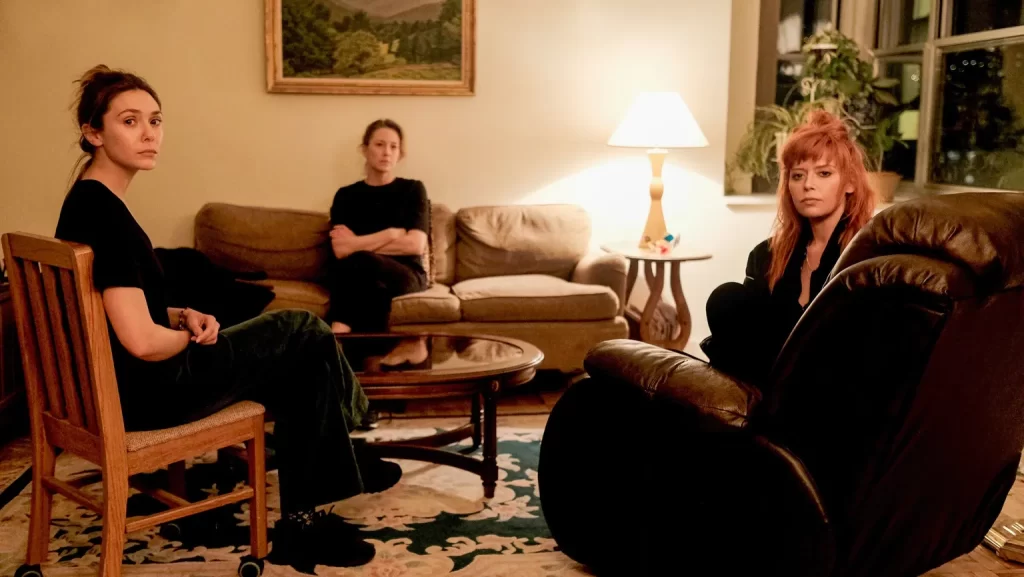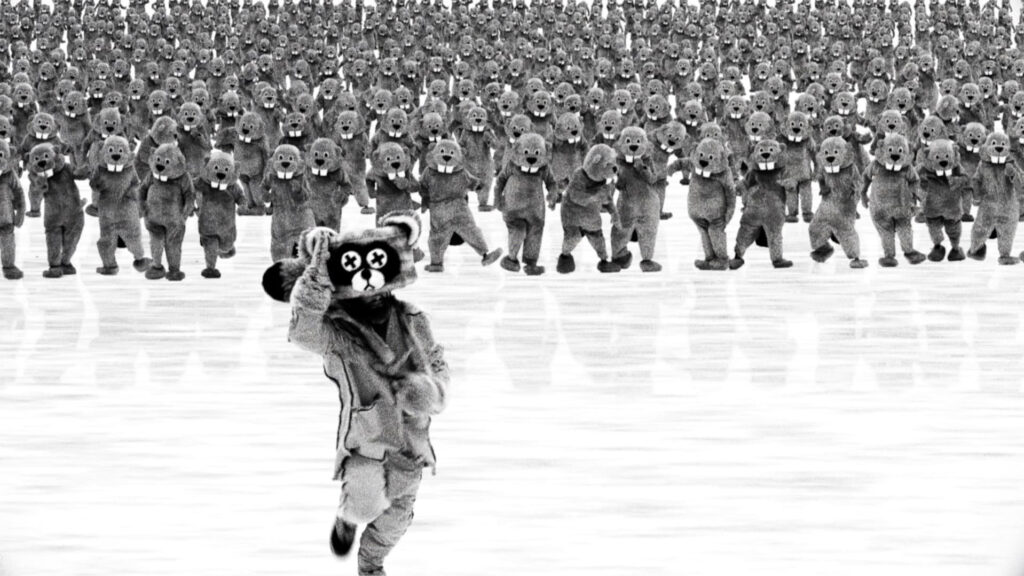Humans have been grappling with mortality, grieving, and making each other laugh for millennia. It takes a beautiful spark of ingenuity to let an audience accept your vision of something as old as time. It takes even more verve to meld it into something truly transcendent.
For His Three Daughters, writer/director Azazel Jacobs gives us a unique perspective on mortality. Cinematic death is often sudden or painfully slow, but it’s rarely telegraphed like it is in this film. It’s rarely shown as just another item on the to-do list. Yet, waiting for death is what brings about drama in the life of this family. These women think they know each other but only know what they perceive from the last time they shared space. The claustrophobia of sharing space with people you used to know is suffocating and brings about a beautiful catharsis in the end.

Jacobs taps into something unique about mortality and immortality with His Three Daughters. He builds drama in the words unsaid and the conflict underneath. His script is funny, devastating, and many times devastatingly funny. The scene where all three women are fighting at once, and it ends with one threatening to hurt the others, is all too real for those of us with siblings.
It is much the same for writer/director Jesse Eisenberg’s script for A Real Pain. While this story also deals with mortality, it details the complicated nature of grief. Unlike his first feature, When You Finish Saving the World, a throwback to the kind of pretentious male characters Eisenberg often played in his youth, A Real Pain is imbued with something far more mature. It’s an eye on the world outside of that brash anxiousness that comes with the superior intellect that his characters are known for.
The assuredness and maturity are balanced by a character, Benji (Keiran Culkin), who denies his own grief and is wildly, entertainingly inappropriate at most times. There is an incredibly complex scene in which we, the audience, on screen and off, are wrapped up in the intensity of Eloge’s (Kurt Egyiawan) story of being a survivor of the Rwandan genocide and finding comfort in Judaism. The telling of the poignant story is punctured by an “Oh, snap!” delivered by Benji. In his own way, Benji expresses genuine surprise at Eloge, but his utterly tone-deaf reaction is startlingly funny and simultaneously cringe-inducing. It doesn’t stop there, either. The beauty of Eisenberg’s script is that we’re always teetering between extremes, and yet we aren’t falling either way because of the incredible balance struck between the polarities.

Mortality and grief are complex lines to walk even in assured hands, but slapstick humor is near impossible for anyone except for the bygone masters. Writers Mike Cheslik and Ryland Brickson Cole Tews have created something with Hundreds of Beavers that no one else has done this well in many years. These two have created a silent film so funny and so inventive that it dares you not to laugh. The story seems simple, but the wackiness of the action keeps you guessing. It’s weird and inventive and has no chance of winning or even being nominated for Best Original Screenplay, but it is a film that must be recognized as one of the most original of the year.
The human experience is rife with emotion and trial. We all experience it in different ways, but sometimes we can see these emotions and trials from a unique perspective. With an original screenplay, we get a glimpse of someone’s perspective on a shared event. We get to spend a little time with people we don’t always understand. We also may get to see a man pitted in an all-out battle against super-intelligent beavers. The human experience is unlimited in an original story.

Here is where I see the Best Original Screenplay race as of now. The list is limited to films that have had their release in theaters or on various streaming services.
- Anora – Sean Baker
- His Three Daughters -Azazel Jacobs
- A Real Pain – Jesse Eisenberg
- Saturday Night – Gil Kenan and Jason Reitman
- We Live in Time – Nick Payne





